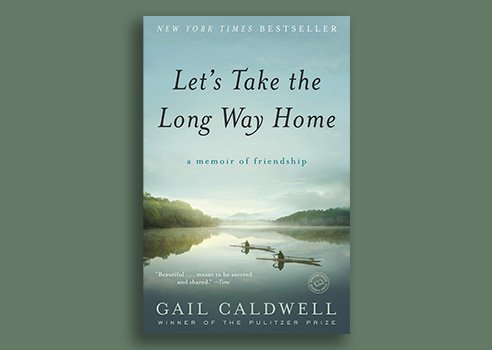Reading time: Just over 1 minute
I like to share interesting pieces of figurative language I encounter in my reading. I write today about a series of similes and metaphors from Gail Caldwell….
I wrote last week about a New York Times piece by Gail Caldwell, an American critic and winner of the 2001 Pulitzer Prize for Criticism. I was so struck by the beauty of her writing that I resolved to read one of her three books as quickly as possible.
There’s not much good news associated with the current COVID pandemic, but it does make it easier to find time for reading, so I quickly settled into Caldwell’s memoir, Let’s Take the Long Way Home.
What a lovely read! Subtitled, A Memoir of a Friendship, the book explores Caldwell’s shared history with Caroline Knapp, also a writer, who died tragically of lung cancer at age 42.
This book offers so much to like and admire, but here are my favourite examples of Gail Caldwell’s figurative language:
- Finding Caroline was like placing a personal ad for an imaginary friend, then having her show up at your door funnier and better than you had conceived.
- The rest of the family tree had a root system soggy with alcohol.
- I was driving down Brattle Street one winter night at the start of a storm, when the snow was surfing the currents of a soft wind, and I had the dissonant thought that I could grow old here.
- The high stakes of real estate hunting fed my anxiety; the market in those days was like a game of musical chairs, with everyone frantically trying to get situated before the music died.
- Accepting a death sentence is like falling down a flight of stairs in slow motion. You take it in one bruise at a time — blow, a landing, another short descent.
- We stayed on the phone for a long time, and we lit candles together at the same moment, like children capturing fireflies in a jar.


